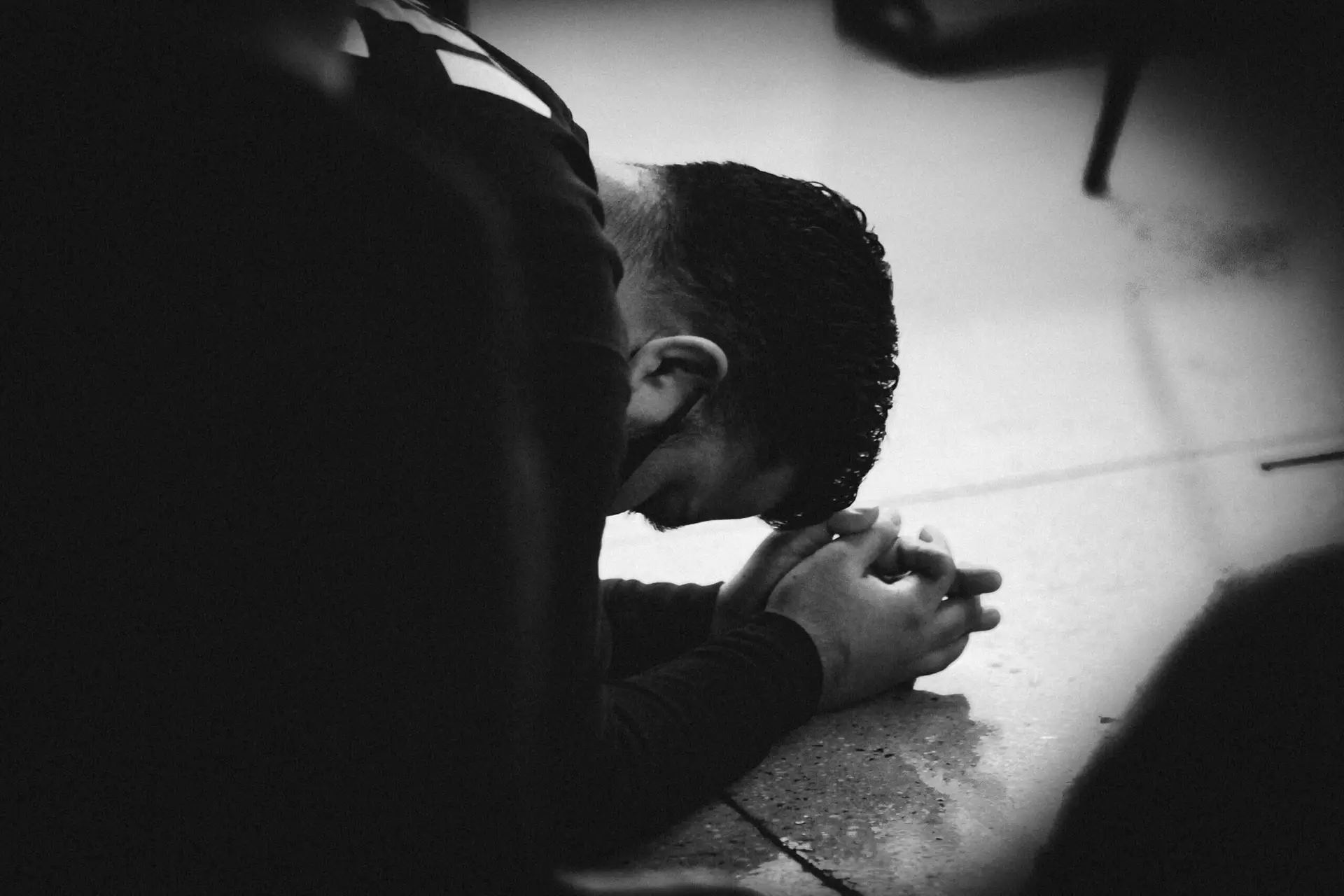Stumbling down the street on this mid-July day was the most powerful man in the country. Yet, he was not dressed in the finery of royal office. Sackcloth covered him from head to toe. And instead of the sweet aromas of perfumes that usually dripped from his clothing, ashes fell from his body as baskets of the foul-smelling waste were dumped on his head as he walked.
This man before whom all England bowed was not accompanied by his protectors or his ministers but he was not alone. A horde of monks, about 80 strong, lined the streets. They were not there to praise the king but to punish him. The monks formed gauntlets and struck the man again and again and again with switches as he walked barefooted through the streets of Canterbury.
People who usually drew back in fear of this man openly jeered him.
It had been almost four years since his frustration overflowed in a verbal outburst that cost a man his life. Had he meant to ask that someone kill this ungrateful priest? Over and over he tried to deflect responsibility telling all who would listen that he was not responsible for how people interpreted his words. Over and over he tried to blame others telling all who would listen that the four knights who did the killing were responsible, not him.
But his protests fell on deaf ears. Everyone knew the history of the two men. Once they had been fast friends. One was king, the other appointed Lord of the Chancellery. And it was the king who orchestrated his friend becoming a priest one day and Archbishop of Canterbury the next.
What King Henry ll intended as a step to increase civil control over the church backfired. Once appointed archbishop, Thomas Becket tried to protect the church, even expand its power.
The blowup was scandalous. Henry charged his former friend with malfeasance as Lord of the Chancellery and resisting the authority of the king. Archbishop Thomas fled to the continent. Six years later the intervention of Pope Alexander lll forced Henry to permit Thomas to resume his duties.
Within weeks the two were openly challenging one another again. That is when the exasperated king, on the night of Dec. 29, 1170, uttered that fateful phrase “Will no one rid me of the turbulent priest?”
Four knights — Reginald FitzUrse, Hugh de Morville, William de Tracy and Richard le Breton — heard their king and acted. They traveled the road to Canterbury to arrest Thomas. When he resisted, they killed him. Individually and collectively the knights were sure they were they were doing their patriotic duty. They were carrying out the wishes of their king. Later they wondered why the king abandoned them. Eventually all four were excommunicated by the church and sentenced to fight for 14 years in the Crusades.
The people, the church, the Pope — all judged King Henry ll responsible for the murder of Thomas Becket, Archbishop of Canterbury. The king did not swing any of the three swords that mortally wounded Thomas but his words set the events in motion. Words do have consequences.
Now Henry faced the public humiliation decreed as his pence for his part in Thomas’ murder at the altar of the Canterbury Cathedral. The king was physically whipped by the church. He was publically humiliated before his subjects. He had to spend a night in the crypt that held Thomas’ body.
His position as king could protect Henry no longer from responsibility for what he said, for the deed to which his words led. The Bible is true when it warns, “Be sure your sins will find you out” (Num. 32:23).
Words do have consequences.
Henry’s life had been privilege and power. He thought himself accountable to no one. After all, who would dare confront the king? But on July 12, 1174, even King Henry ll had to face his nation’s condemnation for his misuse of kingly powers.
Henry’s humiliation illustrates what is still true. Words have consequences. Words can inspire or they can frighten. Words can praise or they can damn. Words can clarify or they can obscure. Words command or words can confuse. Words create expectations. They help form a culture.
Henry’s words created a culture of violence, even the expectation of violence. His words incited murder. Now all England judged him guilty and demanded accountability.
Communications theorists point out the initiator of communications decides the message to be sent and encodes the message in words to transfer that message to recipients. That means the initiator cannot deflect responsibility for the message or blame others for its results.
As all of England saw through Henry’s denial of responsibility, so people today see through attempts to escape responsibility for the consequence of one’s words.
Today means of communications have expanded — texts, emails, tweets and more. But one thing remains the same. One is still responsible for the consequences of one’s words. From that truth there is no escape.
Dr. Bobby S. (Bob) Terry serves as an Advisor to the President of Samford University for Faith Networks. A native of Alabama, Dr. Terry holds degrees from Mississippi College and Southern Baptist Theological Seminary. He was involved in state Baptist papers for more than 50 years beginning in 1968 and retiring at the end of 2018 from The Alabama Baptist newspaper after serving for more than 23 years as it’s President and Editor.
Follow him on Twitter at @drbobterry.
To contact Bob Terry, email [email protected].
This post was originally shared here at drbobterry.com. If you have a submission that you would like to share, send it our way!










